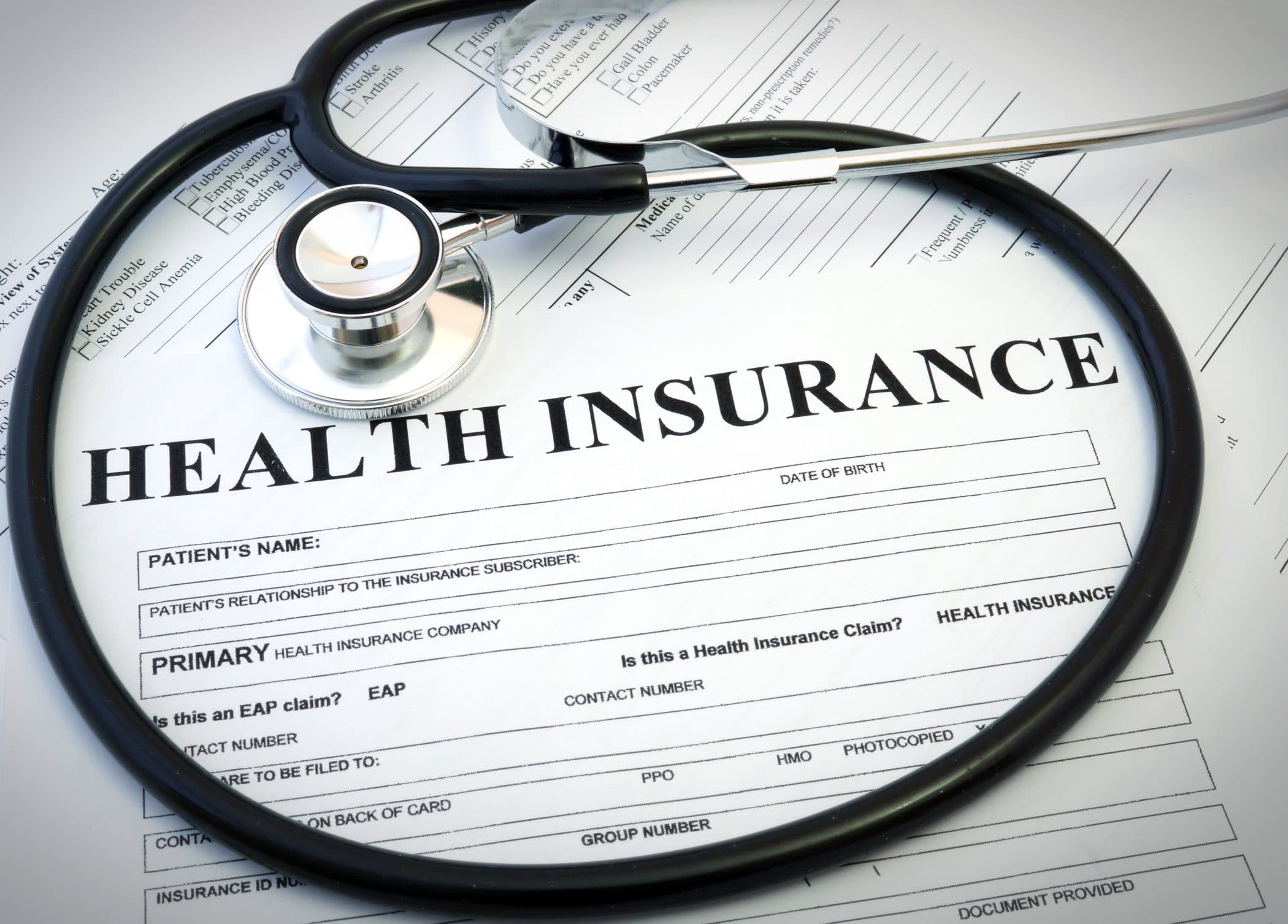When you or your loved one is ready to get professional help and enroll in a drug rehab program, the last thing you should worry about is costs. Still, it can’t be denied that you’ll have to find a way to pay for drug rehab so you can get your life back on track. Many people wonder if Medicaid can cover drug rehab. We have the answer for residents of New Hampshire.
In most cases, health insurance will cover at least a good portion of a person’s substance abuse treatment. For some individuals, it will cover the entire cost of addiction treatment services. Some health insurance companies cover residential treatment at certain treatment facilities, there are also health insurance options that provide care and coverage for a wider range of options. Medicaid covers substance abuse services and alcohol rehab services.
Therefore, it’s essential to check with insurance providers to start up the discussion on what treatments are covered with your insurance.
According to the National Institute on Drug Abuse, substance use disorder, alcohol addiction and drug addiction is a crucial concern in the United States. About 20 million individuals struggle with a form of substance abuse. Addiction can have an intense impact on every facet of a person’s life.
Whether that is their health, relationships, finances, or even career. To make matters worse, addiction often co-occurs with mental health conditions such as depression or anxiety. This can make treatment even more challenging because both disorders must be treated simultaneously.
In 2020, there were an estimated 19.2 million adults that lived with a dual diagnosis in the United States. Out of those same adults, only 7.4 million received treatment for both disorders.
Medicaid in New Hampshire
The Affordable Care Act (ACA) that passed in 2010 stated that all insurance providers, including Medicaid, must cover basic drug and alcohol dependency recovery costs for eligible people. New Hampshire has similar rules to any other state across the US when it comes to Medicaid programs.
To receive Medicaid benefits, individuals need to apply and prove that they’re low-income, as well as other eligibility requirements. According to the New Hampshire Department of Health and Human Services, there are three categories of conditions: general, financial, and medical.
Note that you must be below the Federal Poverty Line (FPL) to meet the financial conditions for Medicaid eligibility. As of 2021, the FPL for a household of four people is $26,500.
Rehab Centers in New Hampshire That Accept Medicaid
Note that not every rehab center accepts Medicaid. This is a business choice and some rehab centers may refuse Medicaid coverage. Luckily, there are plenty of rehab centers in New Hampshire that do accept Medicaid.
If you’re interested in a particular facility, give them a call and ask if they accept Medicaid. Live Free Recovery Services is a drug and alcohol treatment center in New Hampshire that focuses on providing structured sober living homes.
We’re pleased to share that Live Free accepts most forms of New Hampshire Medicaid. You can contact us directly to get a better understanding of our coverage.
Live Free Recovery Services offers various programs, including partial hospitalization, outpatient rehab, and sober living programs. Using Medicaid shouldn’t impact the quality of the drug rehab services you receive.
Addiction looks different for everyone, and, as a result, rehab should also be unique and customized. Live Free Recovery Services believes in helping patients find the type of treatment that works best for them and helps them transition into happy, sober living.
Live Free Recovery Is a Medicaid Drug Rehab
If you’re wondering, “Does Medicaid pay for rehab?” the answer is yes. Medicaid is a federal, nationwide program created to provide medical insurance and care to families and individuals that cannot afford it on their own. For a person to qualify for Medicaid, there are specific financial and other eligibility criteria that must be met.
Any individuals who desire to use New Hampshire Medicaid to assist in covering the cost of addiction treatment can do so at Live Free Recovery. We are a Medicaid drug rehab. Similar to Medicaid, Medicare can also help cover everything from check-ups, to routine doctor office visits.
It also assists with long-term healthcare for the disabled and elderly. One of the most ideal parts is it can even assist in covering mental health services and addiction treatment expenses. When it specifically comes to New Hampshire Medicaid, the following addiction treatment programs can be covered fully or partially.
At Live Free Recovery, we are proud to be a Medicaid drug rehab for those who have the Medicaid insurance or need addiction treatment. Continue reading to learn more and if you have any questions, you can reach out to us at Live Free Recovery or a Medicaid representative. We will be happy to answer any questions that you might have and get you started on your road to recovery.
Benefits of Using Medicaid for Drug Rehab
If you think you qualify for Medicaid coverage for drug rehab in New Hampshire, you should try to apply right away. The truth is that the costs of rehab can be a barrier for some people. Rehab costs can range from $800 (detox) to $10,000 (inpatient rehab program for several weeks).
Medicaid is a government-funded program that is meant to help those in society who need it. It’s important to take advantage of this opportunity. Medicaid can cover or partially reduce rehab costs, removing one final barrier you have to getting the substance abuse or addiction treatment you need.
Who Is Eligible for Medicaid in New Hampshire?
Sometimes, some states have different requirements when it comes to who is eligible for Medicaid, and who isn’t. In the state of New Hampshire, for a person to be eligible for Medicaid, they must be a resident of the state as well as one of the following:
- A permanent resident of the country
- A United States citizen
- A U.S. national citizen
- A legal alien
You must also be able to meet certain financial requirements and maintain a low-income and extremely low-income individual or household. In addition to those requirements, to receive New Hampshire Medicaid, you must be one of the following:
- Disabled (either you or a family member in your household)
- Responsible for a child that is 18 years of age or older
- 65 or older
- Pregnant
- Blind
Can Veterans Qualify for Medicaid?
Veterans can qualify for Medicaid is the short answer. The veterans in the United States are eligible to receive Medicaid benefits and many of them do. Matter-of-fact, nearly 10 million non-elderly veterans in the United States, more than half of them, receive at least some form of Medicaid benefits.
What’s the Difference Between Medicaid and Medicare?
There are several differences between Medicaid and Medicare. It’s important to remember that while both are considered government-funded programs, Medicaid and Medicare aren’t the same. For starters, when it comes to Medicaid:
Medicaid
Medicaid helps individuals who might have been struggling financially or even live in low-income homes. As a result of that, Medicaid is considered an assistance program and it is available to anyone who qualifies regardless of age. Individuals who are on Medicaid often pay very little when it comes to medical expenses and costs.
Medicare
On the contrary, Medicare is a federally run insurance program that operates similarly to private insurance. Throughout an individual’s life, they will pay into a Medicare program. Oftentimes, this amount is taken straight out of their paycheck.
Once a person turns the age of 65, they are eligible for Medicare and this means that the medical bills will then be paid out of the same fund they had to pay into earlier in life. Individuals under the age of 65 might also qualify for Medicare if they suffer from certain medical conditions and are disabled.
Similar to how individuals will operate with private insurance plan and Medicare, people will often pay deductibles and any other costs that they would with private insurance.
Does Medicare Pay For Rehab?
Medicare will provide patients in need of rehab, mental health, or addiction issues with little to no cost expenses, thanks to Mental Health Parity and Addiction Equity Act. As a matter of fact, federal guidelines require that Medicaid comply with parity requirements.
Furthermore, federal guidelines require that Medicaid provide the same level of care and coverage for individuals struggling with addiction and mental health issues that they would for various other medical conditions. Below are a few health services that Medicaid will cover:
Will New Hampshire Medicaid Help Cover My Treatment?
Medicaid will be a great help in getting health coverage for individuals who are financially struggling or coming from low-income homes. When individuals are struggling with mental health and addiction issues, enough is going on.
The last thing they should have to worry about is finances and if they can afford the help that they need. At Live Free Recovery, not only do we accept Medicaid, but we also work with you to ensure that you can afford treatment if it should be out-of-pocket. Contact us to learn more about our treatment programs or get started on your recovery journey.
[lightweight-accordion title=”References:”] https://www.samhsa.gov/data/sites/default/files/reports/rpt29393/2019NSDUHFFRPDFWHTML/2019NSDUHFFR1PDFW090120.pdf https://aspe.hhs.gov/reports/affordable-care-act-expands-mental-health-substance-use-disorder-benefits-federal-parity-protections-0 https://www.cms.gov/CCIIO/Programs-and-Initiatives/Other-Insurance-Protections/mhpaea_factsheet https://www.census.gov/newsroom/blogs/random-samplings/2017/09/health_insurancecov0.html https://www.medicaid.gov/federal-policy-guidance/downloads/cib031821.pdf https://www.healthcare.gov/glossary/federal-poverty-level-fpl/ [/lightweight-accordion]




